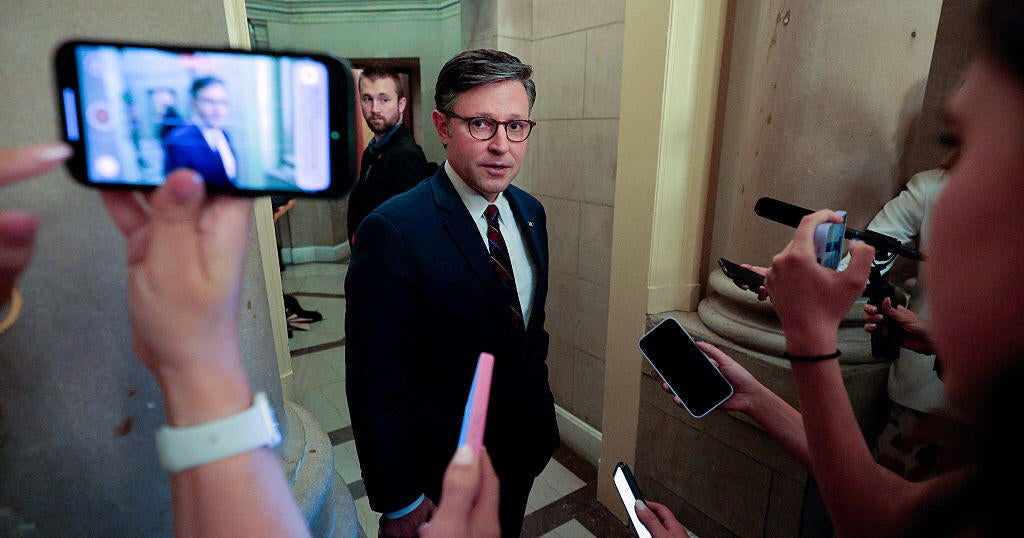In a bustling atmosphere indicative of pivotal legislative efforts, Washington D.C. has become the battleground for a comprehensive and contentious piece of legislation that has divided the political spectrum. House Republican leaders are currently in a fervent rush to consolidate backing for President Donald Trump’s significant domestic policy initiative. This widespread bill addresses key facets of domestic agenda such as amplified border security funding, military expenditures, enhanced energy production initiatives, and extends trillions in tax concessions. However, it’s not without its trade-offs, as it seeks to balance these expansions with significant cuts to healthcare and nutrition provisions.
The urgency is palpable as the GOP aims to secure endorsement for the final draft of the legislation before an approaching July 4 deadline, a target set to ensure that the bill is on the President’s desk promptly. The earlier version of this comprehensive bill barely passed in the Senate and now faces additional hurdles in the House. Various amendments made by the Senate have not been warmly accepted by certain sections of House Republicans, creating an unsettling cloud of uncertainty over whether the necessary support is in place to carry the bill through to fruition.
Potential dissenters, ranging from moderate Republicans to members of the staunchly conservative House Freedom Caucus, are actively engaged in negotiations. President Trump himself has stepped into the fray, holding sessions with these key lawmakers in an attempt to solidify the needed majority. Despite these efforts, Rep. Andy Harris of Maryland, chairman of the House Freedom Caucus, cast doubt on the outcome, predicting potential failure in critical procedural votes slated for the afternoon.
As the House Rules Committee green-lighted the Senate’s revisions to the bill in an overnight session, the scene was set for this pivotal procedural vote. However, dissent from within the ranks of the Republicans was apparent, with GOP Representatives Ralph Norman of South Carolina and Chip Roy of Texas siding with Democrats on the panel to oppose the rule. Their dissent marks them as potential detractors in the forthcoming crucial votes.
Norman’s denouncement of the Senate’s alterations as “unconscionable” echoed a broader sentiment of discontent. He asserted his resolve to oppose the changes both in committee and on the House floor until a satisfactory version is achieved. These internal divisions within the Republican ranks underscore a critical challenge: the majority can only endure up to three defections, assuming full attendance and participation in the vote.
House Speaker Mike Johnson of Louisiana has previously implored the Senate not to diverge significantly from the House-approved version, passed by a narrow margin. However, with the Senate bill instituting deeper cuts to Medicaid, an increased rise in the debt ceiling, and alterations to energy and tax policies, Johnson and others have found the changes more extensive than preferred.
For their parts, opponents of the bill, including a strong lineup of House Democrats, have voiced staunch opposition. Representative Jim McGovern of Massachusetts decried the bill as a “massive betrayal of the American public,” rallying against what he perceives as damaging and elitist policy measures favoring the wealthiest at the expense of the broader populace. Echoing this sentiment, Hakeem Jeffries warned that all House Democrats stand united in opposition, potentially seeking four Republican allies to thwart the bill’s passage.
Complicating matters are logistical issues due to adverse weather conditions, with several lawmakers experiencing delays and cancellations as they attempt to return to Washington for the vote. This unexpected twist adds another layer of uncertainty to the already tight timeline and precarious vote count.
Despite these challenges, supporters of the legislation remain adamant about pushing forward. Representative Virginia Foxx of North Carolina highlighted the readiness of President Trump, who is eager to sign the bill into law. She rallied the Republican troops, emphasizing that the finish line is within reach, branding this moment as crucial in concluding months of legislative effort.
Across the digital expanse, President Trump took to Truth Social to galvanize support, urging Republicans not to yield to opposition forces and to utilize their political leverage effectively. This sentiment underscores the high stakes involved, as both proponents and detractors of the bill mobilize for what promises to be a dramatic showdown in the nation’s capital.
In summary, the situation surrounding President Trump’s significant domestic policy bill is one of high political drama, strategic negotiations, and fervent opposition, with outcomes that could significantly reshape aspects of American domestic policy. The coming days will be critical in determining whether this legislative juggernaut can indeed be directed to the President’s desk or if the internal divisions and procedural barriers will derail its progress. The close watch continues as Washington gears up for a climactic legislative session.









